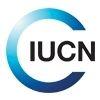|
|
Due to maintenance work, our HR Management System might be inaccessible on
Saturday, 20 April 2024, from 6:00 to 10:00 CEST (UTC+02:00)

Senior Programme Officer - Water and Biodiversity
|
IUCN Uganda has played a pioneering role in providing science and knowledge to inform the paradigm shift in water resources management in Uganda from Sectoral to Integrated Water Resources Management (IWRM). This has been through implementation of field projects, studies and using evidence to support policy reforms in the water and wetlands sector. Currently, IUCN is piloting the catchment management approach in Upper Aswa, Rwizi and the Mount Elgon ecosystems.
More specifically, the roles and responsibilities of the Senior Programme Officer - Water and Biodiversity are described below:
7.1 Administrative and managerial oversight of the Water and Biodiverstiy portfolio:
• In consultation with project staff and the Finance Department; Prepare and update the Water and Biodiversity Portfolio on a regular basis and as requested by the Head of Office;
• Work closely with the Head of Office as well as relevant Technical Coordinators to identify opportunities and strategic approaches to ensure that the portfolio is financially viable and sustainable;
• Convene regular meetings with project staff to review progress on projects as well as cost recovery and provide monthly reports to the Head of Office
• Provide support to monitoring and evaluation processes of the portfolio of projects, ensuring that M&E processes are carried out in line with IUCN guidelines and procedures
7.2 Project management and implementation
• Ensure the timely implementation of projects within the portfolio, in accordance with the projects’ documents, supporting agreements (e.g. contracts, MoUs, Project Activity Implementation Agreements etc.), annual work plans and the procedures of IUCN;
• Ensure that programme/project budgets are utilized and monitored in accordance with IUCN internal controls and donor agreements;
• Lead and ensure the collection, collation, and reporting of all project data and documents, including timely submission of technical progress reports according to the agreed formats and deadlines
• Maintain appropriate and effective (timely, respectful and professional) communications with all IUCN and programme stakeholders; and
• Provide capacity strengthening to team members and project partners to improve capacity to deliver on project activities and objectives
7.3 Technical backstopping and support to programmatic initiatives (Water and Biodiversity)
• Develop strategic and operational work plans for the delivery of projects and other programmatic initiatives, ensuring integrated collaboration between IUCN’s thematic portfolios as appropriate;
• Contribute directly to the delivery of technical outputs, ensuring high quality, relevance and technical accuracy;
• Identify, establish and build relationships with strategic partners (including, but not limited to Members and Donors) relevant and necessary for Programme delivery and growth;
• Support the Technical Coordinators in developing and implementing strategies for learning and knowledge generation from ongoing initiatives for sharing with the wider Regional Team as well as the broader IUCN Constituency;
• Identify needs and opportunities for Programme development and work with the Technical Coordinator(s), the Head of Office and other members of the team to develop new concept notes and mobilizing resources; and
• Contribute to the review and development of IUCN’s regional programme as requested by the Head of Office.
|
• A Master of Science Degree in Natural Resource Management, or its equivalent, with a specialisation in water resources or wetlands management • Strong knowledge and experience in implementation of biodiversity and water related projects for mitigation and adaptation to climate change; • Basic knowledge of the Catchment Based Water Resource Management approach • At least six years’ work experience in managing and coordinating projects within the water and wetlands sectors. • Proven experience in participatory natural resource management. Proven ability to organise and facilitate multi-stakeholder participatory processes • Familiarity with the Ugandan Catchment Based Water Resource Management approach and associated policy and laws • Demonstrated capacity to work in a multi-disciplinary and multi-partner environment. • Proven ability in project management and administration. • Ability to communicate with different partners and stakeholders. • Demonstrated experience in building teams for collective delivery • Fluency in English • Understanding of and motivated to work according to IUCN’s vision and approach • Highly Computer literacy; • Cultural awareness and sensitivity to gender issues; • Willingness to travel frequently in-country and abroad • Must be an innovative and pro-active individual who is able to work with minimum supervision |
Applicants are requested to apply online through the HR Management System, by opening the vacancy announcement and pressing the "Apply" button.
Applicants will be asked to create an account and submit their profile information. Applications will not be accepted after the closing date. The vacancy closes at midnight, Swiss time (GMT+1 / GMT+2 during Daylight Saving Time, DST). Please note that only selected applicants will be personally contacted for interviews.
Other job opportunities are published in the IUCN website: https://www.iucn.org/involved/jobs/
About IUCN
IUCN is a membership Union uniquely composed of both government and civil society organisations. It provides public, private and non-governmental organisations with the knowledge and tools that enable human progress, economic development and nature conservation to take place together.
Created in 1948, IUCN is now the world’s largest and most diverse environmental network, harnessing the knowledge, resources and reach of more than 1,400 Member organisations and around 16,000 experts. It is a leading provider of conservation data, assessments and analysis. Its broad membership enables IUCN to fill the role of incubator and trusted repository of best practices, tools and international standards.
IUCN provides a neutral space in which diverse stakeholders including governments, NGOs, scientists, businesses, local communities, indigenous peoples organisations and others can work together to forge and implement solutions to environmental challenges and achieve sustainable development.
Working with many partners and supporters, IUCN implements a large and diverse portfolio of conservation projects worldwide. Combining the latest science with the traditional knowledge of local communities, these projects work to reverse habitat loss, restore ecosystems and improve people’s well-being.
www.iucn.org
https://twitter.com/IUCN
